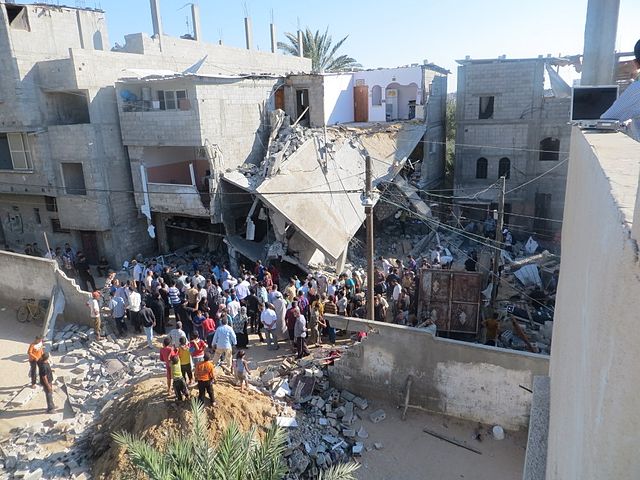EU leaders have urged for temporary halts on the ongoing bombing by Israel and rocket attacks by Hamas in order to facilitate the delivery of humanitarian aid into Gaza.
Despite the disagreements among the member states over the Israel-Palestine conflict, the EU leaders have reached a compromise. In a declaration agreed at a summit in Brussels, the leaders of the EU member states expressed their grave concern regarding the deteriorating humanitarian situation in Gaza.
The call is for continuous, prompt, secure, and unobstructed humanitarian aid access to reach those in need. All necessary measures, including using humanitarian corridors and pauses for humanitarian needs, should be taken to ensure this aid reaches its intended recipients.
While EU leaders have strongly condemned Hamas’ attack, they have struggled to maintain a consistent message. Some have emphasised Israel’s right to self-defense, while others have expressed concern about the safety of Palestinian civilians.
As the summit began, it was evident that the leaders had differences. German Chancellor Olaf Scholz expressed his confidence in Israel’s commitment to humanitarian principles and adherence to international law by saying, “Israel is a democratic state that follows strict humanitarian principles, so I am certain that the Israeli army will always respect the rules that arise from international law.”
On October 25, Scholz posted on X, “The German government continues to support humanitarian care for the people in Gaza”.
He said we must work towards a political solution that allows Israelis and Palestinians to live in peace and security.
Scholz’s statements were in direct contrast with the recent remarks made by EU Council President Charles Michel and EU foreign policy chief Josep Borrell. They have stated that a complete blockade of Gaza and attacks on civilian infrastructure breach international law. Human Rights Watch and other organizations have accused Israel of violating international humanitarian law. Despite this, Israel maintains that its actions are legitimate under international law and that its objective is to target Hamas, known to operate within the civilian population.
French President Emmanuel Macron took to Twitter on October 25 to address the critical situation of hospitals in Gaza and emphasised the urgent need to restore access to electricity. He further announced his decision to provide new funding for the Jordanian hospital in Gaza, as well as the deployment of a ship from the French National Navy and planes to deliver humanitarian aid to the region.
“I take two priorities with me to the EU Council: 1. extremist Palestinian organization Hamas must release all its hostages unconditionally, 2. Israel must end the unacceptable blockade of the Gaza Strip,” Belgian Prime Minister Alexander De Croo told journalists arriving at the EU Council meeting.
Israel has a right to take action and to prevent future attacks. But that is never an excuse for blocking a whole region or humanitarian aid. It cannot be an excuse to starve a population, De Croo said.
Several European countries, such as France, the Netherlands, Spain, Portugal, Belgium, and Ireland, supported the United Nations’ calls for a temporary ceasefire in the Israeli-Palestinian conflict for humanitarian reasons. However, several other countries, such as Germany, the Czech Republic, and Austria, resisted the calls. Though the EU’s influence on the conflict is limited, the bloc is concerned that an escalation could have severe consequences for Europe, such as a rise in tensions between communities, possible terrorist attacks, and an influx of refugees.
The Middle East crisis could also affect the War in Ukraine, reducing political attention and resources from the West. The EU Summit aims to demonstrate ongoing support for Ukraine despite these concerns.

